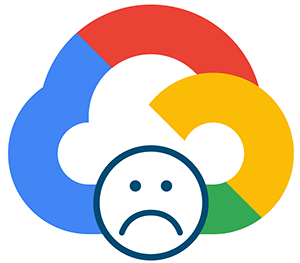In the vast expanse of cloud computing, Google Cloud Platform is a significant contender, navigating a competitive landscape alongside industry giants like AWS. Yet, with the advent of more economical alternatives, those contemplating GCP might need clarification on whether it offers the most bang for their buck. Every cloud platform has advantages and challenges, and choosing the right one requires a comprehensive evaluation of available options. This article delves into GCP’s nuanced pros and cons, aiming to guide potential users in making informed decisions.


Advantages of Google Cloud Platform
Security
- Enables precise management of user identities.
- Facilitates role assignment for defined responsibilities.
- Establishes fine-grained access policies for secure cloud resource management.
- Complexity may arise in configuring and managing IAM, particularly for businesses with intricate access control requirements.
- Limitations include project-specific IAM roles, potentially complicating access setup across multiple projects or organizations.
This rearrangement provides a unique perspective on GCP’s security measures, emphasizing different aspects of each feature to enhance understanding.
Global connectivity advantage
At the core of the Google Cloud Platform (GCP) lies an unparalleled network of data centers, granting unprecedented accessibility to your applications. This distinctive feature becomes a strategic asset for businesses navigating regulatory intricacies, especially in regions like the European Union, where local data center compliance is imperative. Moreover, it empowers companies with the freedom to seamlessly incorporate multi-region redundancy or strategically opt for cost-effective hosting in different global locales.
Pioneering technological advancements
Google Cloud Platform (GCP) stands out for continuously introducing groundbreaking features and enhancements, positioning businesses on the leading edge of technological progress. GCP’s diverse suite of tools empowers enterprises to unlock the potential of data, establish robust and scalable infrastructure, and harness cutting-edge functionalities, including the prowess of machine learning. In today’s fiercely competitive market, strategically utilizing the latest technologies is not merely advantageous but imperative for sustaining a competitive edge.
However, the allure of having access to these innovative features comes with a strategic caveat. While integrating these advancements into virtual machines (VMs) seems enticing, the economic implications warrant careful consideration. The incremental increase in cloud costs associated with integrating such features becomes a pertinent concern, especially in scenarios where numerous VMs are operational. This underscores the need to meticulously evaluate the cost-effectiveness of incorporating these features into each VM, ensuring an informed and economically sound approach to technological adoption.
Versatility in service offerings
Distinguishing itself with a diverse and dynamic service portfolio, GCP goes beyond the conventional cloud computing landscape. GCP provides a unique and comprehensive suite of services, from cutting-edge computing and networking solutions to robust storage, big data analytics, machine learning, and efficient management tools. This distinctive versatility ensures that businesses have the autonomy to curate a tailored toolkit, precisely aligning with their distinct needs for building and orchestrating applications.

Drawbacks of Google Cloud Platform
Security apprehensions
For businesses entrusted with safeguarding sensitive data, there may be lingering concerns regarding GCP’s security infrastructure. While GCP takes pride in its robust security features and adherence to industry-leading practices for customer data protection, no system can assert absolute immunity to evolving security risks. The ever-shifting landscape of cybersecurity threats demands constant vigilance and proactive measures. Previously highlighted were concerns related to GCP’s security features, providing insights without reiterating the details here.
Complex pricing dynamics
Limited support offerings
GCP’s support options may be restricted, potentially causing impediments for businesses seeking expeditious assistance. Support constraints can impede the pace and effectiveness of issue resolution, resulting in delays for businesses needing timely technical guidance or troubleshooting assistance. This directly impacts system availability, performance, and overall productivity.
Businesses can explore additional measures to address the potential challenges arising from limited support. These may include investments in internal expertise, community forums, knowledge base utilization, engagement with third-party support providers, or consideration of professional services offered by GCP’s certified partners.
In summary
In cloud computing, Google Cloud Platform (GCP) emerges as a strong contender, competing with industry giants like AWS. This article meticulously explored the advantages and drawbacks of GCP, delving into its security features, pricing intricacies, and support offerings. While GCP impresses with its global connectivity advantage, pioneering technological advancements, and versatile service portfolio, concerns about security and limited support options prompt careful consideration. The decision to adopt GCP hinges on businesses’ specific needs, requiring a nuanced evaluation of the platform’s strengths and potential challenges to make informed and strategic choices in the ever-evolving landscape of cloud services.
If you are a ☁️GCP user, Hystax OptScale offers the first-ever open source FinOps & MLOps solution for any cloud workload under Apache 2.0.
OptScale is currently the solution of choice for PwC, Ives Rocher, Nokia, DHL, Airbus, and more iconic brands for its FinOps and MLOps enablement with the ability to offer them a platform that promotes complete expense tracking and cloud cost visibility, resource and infrastructure optimization, countless optimization recommendations, efficient cloud usage experience to enhance business performance, and ML/AI efficiency and cost reduction →
